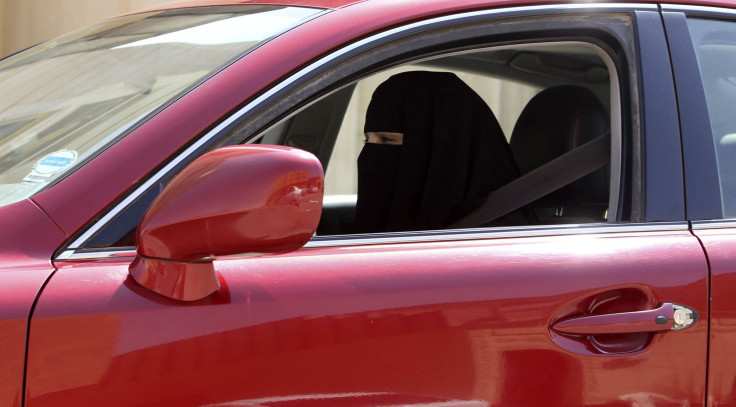Driving --And Tweeting -- While Female In Saudi Arabia: A Terrorist Act?

Two Saudi women, Loujain al-Hathloul, 25, and Maysa al-Amoudi, 33, a Saudi journalist based in the United Arab Emirates, have been detained by Saudi authorities for more than a month -- not for their defiance of the ban on women driving, according to activists who wished to remain anonymous, but for their online advocacy for female drivers. Combined, they have more than 355,000 Twitter followers and support a grassroots movement started last year to end the ban in Saudi Arabia against female drivers, CBS News reported.
There is no law that bans women from driving in Saudi Arabia, but there is an unwritten rule supported by conservative Muslim clerics that's been in place since 1957, and women cannot get driver's licenses. Clerics have claimed that female drivers could harm their reproductive health by driving. Driving while female can get Saudi women arrested by the country's religious police, get them fired from their jobs, and result in threats and abuse. No other country enforces such a ban.
Both women were detained after driving to Saudi Arabia from the United Arab Emirates. Al-Hathloul attempted to cross the border Nov. 30 with a UAE driver's license and was stopped by border guards who confiscated her passport, reported Human Rights Watch. Al-Amoudi was attempting to deliver food and a blanket to al-Hathloul at the border, according to activists and relatives. They were both arrest Dec. 1.
Sources close to the defendents said Thursday, their cases were referred to a court that tries terrorism cases, CBS News reported. Al-Amoudi's and al-Hathloul's lawyers have appealed the decision and await the ruling in a few days.
Human Rights Watch has said Saudi authorities are punishing people "who peacefully criticize the government on the Internet," by using "vague provisions of a 2007 anti-cybercrime law to charge and try Saudi citizens for peaceful tweets and social media comments."
A campaign started in October 2013 hopes to turn the tide against the ban on female drivers in Saudi Arabia and has asked King Abdullah to pardon the two women.
In addition to being banned from driving, Saudi women cannot work or travel overseas without the permission of a male relative.
© Copyright IBTimes 2025. All rights reserved.






















